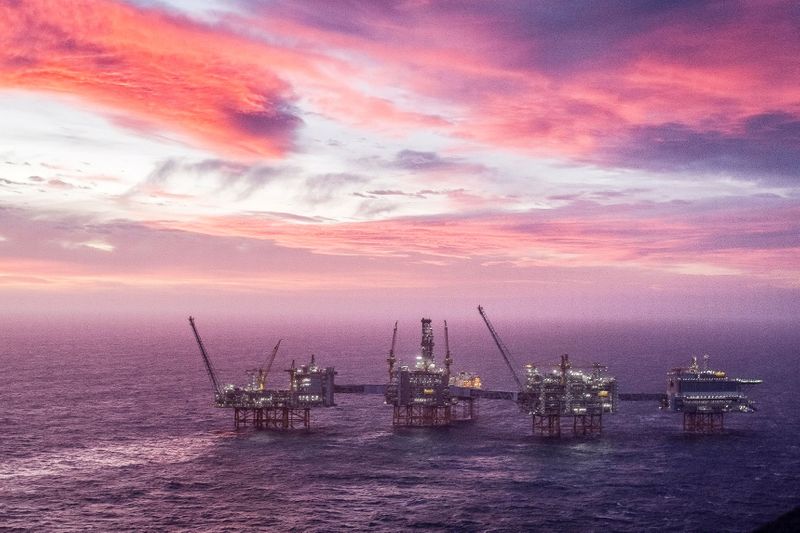By Peter Nurse
Investing.com -- Oil prices fell Thursday, weighed by a stronger dollar and on expectations of reduced economic activity given aggressive monetary tightening.
By 09:35 ET (13:35 GMT), U.S. crude futures traded 2.1% lower at $86.66 a barrel, while the Brent contract fell 2.2% to $92.03.
U.S. Gasoline RBOB Futures were down 3.7% at $2.4317 a gallon.
The oil market is still suffering the repercussions of the hot U.S. inflation report earlier this week, raising expectations that the Federal Reserve will announce a potentially large interest rate increase next week as it seeks to tackle elevated inflation at the potential expense of economic growth.
The dollar has benefitted from these heightened expectations, climbing close to a 20-year high against the euro, a 24-year peak versus the yen and a 37-year high versus sterling. This makes crude, which is denominated in dollars, more expensive for foreign buyers.
These aggressive rate increases–the European Central Bank also hiked by a hefty 75 basis points last week–are likely to hit crude demand this year, with the International Energy Agency expecting oil demand growth to grind to a halt in the fourth quarter.
Additionally, China, the largest importer of crude in the world, is still struggling to contain COVID-19 outbreaks, as its government continues to prosecute the battle against the virus pretty much as it did at the start of the pandemic in early 2020 -- lockdowns to try and cut off transmission.
“The IEA estimates that Chinese oil demand will fall by 420Mbbls/d this year, which would be the first annual decline since 1990,” analysts at ING said, in a note. “Chinese demand has clearly suffered due to the zero covid policy that China continues to follow.”
Also weighing on sentiment was Wednesday’s data from the Energy Information Administration which showed that crude inventories in the U.S., the largest consumer in the world, rose more than expected last week, suggesting weaker fuel demand.
That said, the structural outlook remains very tight, with the West sanctioning Russian oil firms for Moscow’s invasion of Ukraine and Russia retaliating by halting the supply of gas to western Europe, via the Nord Stream pipeline, creating worries that a number of countries will have to ration energy over the winter months.
Italy “can make it” through the coming winter even without gas from Russia, assuming temperatures remain mild, Eni CEO Claudio Descalzi said earlier Thursday.
The state-controlled energy giant has pledged to replace about 50% of its gas imports from Russia between this year and 2023, rising to 80% in 2023-2024, and it targets complete replacement from other sources by 2024-2025.
